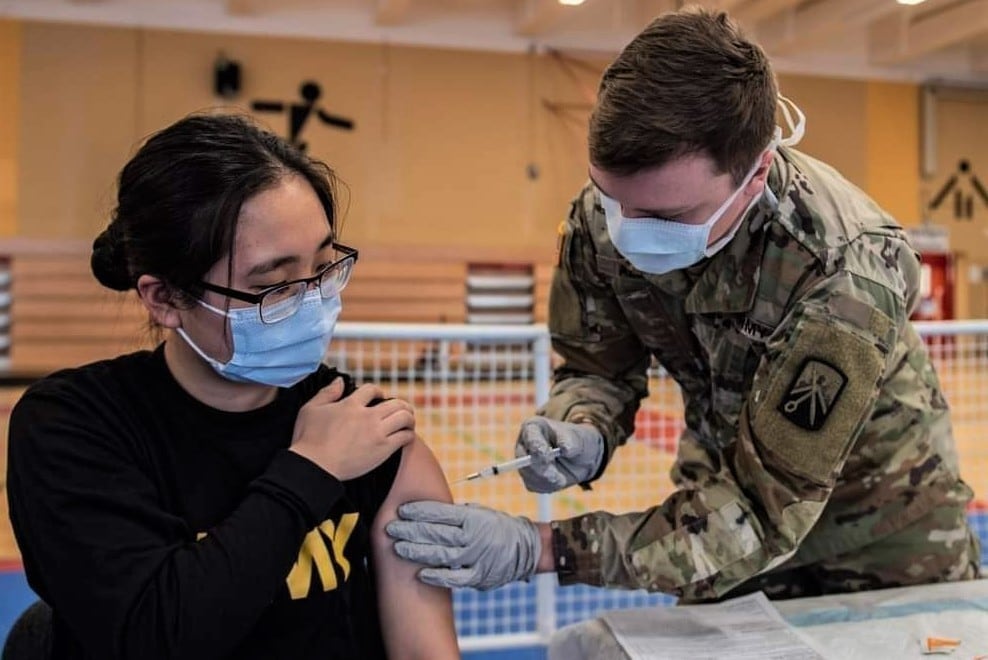Face coverings are no longer required on military installations for troops who have been fully vaccinated against COVID-19, but it will be up to local leadership to make sure that their unvaccinated personnel are still complying with Centers for Disease Control and Prevention guidance.
Much like when mask mandates first came online a year ago, commanders will be responsible for maintaining accountability.
“That’s leader business,” Lt. Gen. Ronald Place, head of the Defense Health Agency, told Military Times. “And so where you’re a member of a unit, of course, commander’s business. Where we’re civilian employees, then we use the appropriate, you know, labor laws or internal discipline, like we do for the thousands of regulations and laws we have for everyday business.”
Roughly a third of service members, across the active-duty and reserve components, are fully vaccinated against COVID-19, while another 14 percent are partially vaccinated, according to Defense Department data released Wednesday.
But the Pentagon still wants to get those numbers up, so on Thursday, Deputy Defense Secretary Kathleen Hicks and Air Force Gen. John Hyten, vice chairman of the Joint Chiefs of Staff, sent a memo to leadership with some ideas for how to encourage their people to make appointments.
One of those suggestions involves using personnel policy to make vaccination more attractive. Those include authorizing special liberty for those who’ve been inoculated, and offering non-chargeable leave for troops who experience flu-like side effects in the day following their first or second doses.
“They can give liberal leave, for example, to those who get vaccinated,” said Dr. Terry Adirim, the acting the acting assistant defense secretary for health affairs.
The memo also encourages commanders to just talk to their troops about getting vaccinated.
RELATED

“When we engage Service members at an individual level using trusted messengers ― particularly peers, medical personnel, and first-line leaders ― who acknowledge concerns in a nonjudgmental way and address questions, we know that we can increase vaccination rates, one individual at a time,” the memo reads.
The department is not keeping track of take-rates among service members, but can say generally that troops stationed outside of the country are more likely to get vaccinated than those stateside.
“If you look overseas, on the other hand, every single one of the [combatant commands] is now vaccinated both partially and fully at rates that are higher than in the United States,” Place said.
The COVID-19 is still completely voluntary for service members, and will almost certainly remain so until it receives full Food and Drug Administration approval, expected some time in 2023.
At that point, Adirim said, DoD will review whether to make it mandatory, as so many other vaccines are for troops.
“Just understand, we mandate licensed vaccines for our uniformed service members routinely,” she said. “So you can imagine that, you know, like for other licensed vaccines, we may consider it.”
Meghann Myers is the Pentagon bureau chief at Military Times. She covers operations, policy, personnel, leadership and other issues affecting service members.




